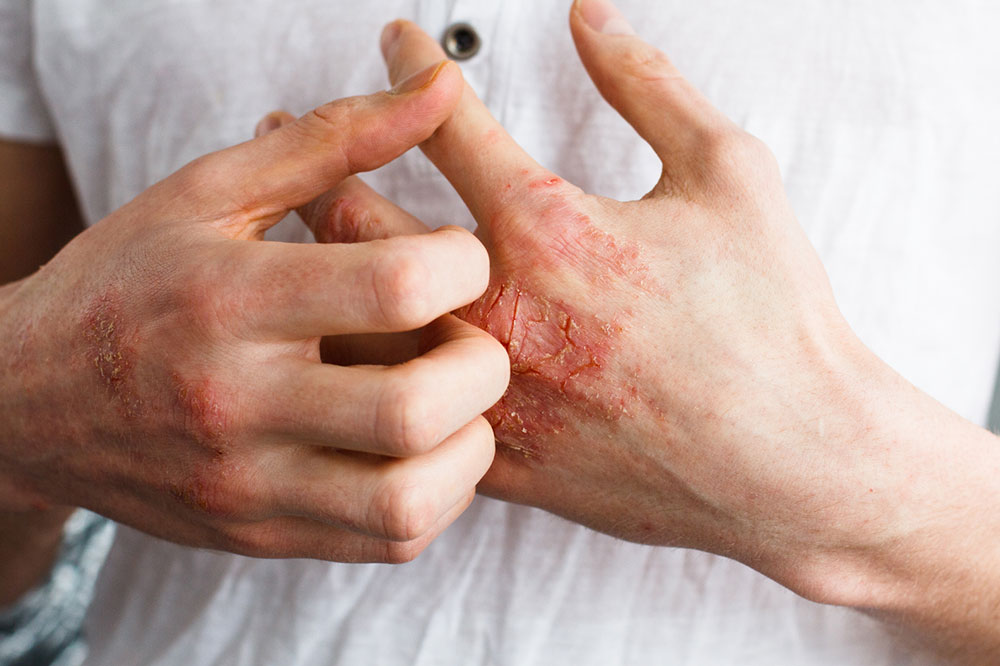
8 Effective Dietary Tips to Manage Eczema
Eczema can cause severe discomfort, but there is no cure for this skin condition yet. Researchers are studying this disease and have found that certain diet changes can help ease eczema and relieve the symptoms to an extent. Here are a few helpful diet and nutrition tips for eczema patients:
Consume foods rich in omega-3 fats
Omega-3 fatty acids are anti-inflammatory, so they help relieve the symptoms to a great extent. Some rich sources of these healthy fats are fatty fish like herring and salmon. If one follows a vegetarian diet, they can opt for nuts, seeds, plant oils, and foods fortified with omega-3 fatty acids. One should consume 250mg of this nutrient daily.
Try the Mediterranean diet
The Mediterranean diet has shown a positive effect in many eczema patients, as it is abundant in healthy fats, fruits, and vegetables. The diet allows the consumption of red wine, which has quercetin, and it does not encourage the intake of red meat and desserts. One can try this diet after consulting their doctor.
Consume probiotics every day
Probiotics help support the immune system and prevent eczema. So, eating foods rich in probiotics is recommended by experts. These foods include kefir, sourdough bread, Gouda cheese or other soft cheeses, tempeh, miso soup, and naturally fermented pickles.
Identify the triggers with an elimination diet
A nutrition tip for eczema patients with food allergies is to follow an elimination diet to help identify the allergens. Eczema symptoms can be exacerbated due to the consumption of certain foods, so this diet requires one to avoid eating a certain food to see whether it affects the intensity and frequency of flare-ups. This diet can help one find out which foods they are allergic to.
Eat foods containing flavonoid quercetin
Quercetin is a flavonoid due to which fruits and vegetables have a particular color. Foods that contain quercetin include blueberries, spinach, cherries, kale, and apples. This flavonoid is considered to be an antihistamine and antioxidant, which can soothe eczema flare-ups.
Follow an anti-inflammatory diet
Another effective nutrition tip for eczema patients is to follow an anti-inflammatory diet, which focuses on foods rich in fiber. For instance, eating fish rich in omega-3 fatty acids, whole grains, and fruits and vegetables is encouraged in this diet. Processed foods cannot be eaten in this diet, as they lead to inflammation and worsen eczema.
Avoid gluten if sensitive to it
People who are gluten sensitive or have celiac disease should avoid eating gluten. This can help improve their skin health over time and prevent flare-ups in the future. One can find several gluten-free products, like rye and barley, that they can opt for.
Dyshidrotic diet for those with dyshidrotic eczema
If one has dyshidrotic eczema, cobalt and nickel can worsen eczema symptoms, so following this diet is a helpful nutrition tips for eczema patients. The diet avoids chickpeas, cocoa, whole wheat, rye, canned foods, and baking powder, among others. It encourages the intake of fresh fruits and vegetables, which are rich in vitamin C.



